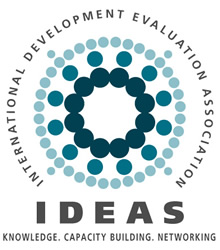Summary
This ITIG will serve as a catalyst to promote evaluations in the contexts of fragility, conflict and violence. Specifically, it will consider new and innovative methods, approaches and tools that lend themselves to challenges faced by evaluations in situations that are fluid, complex and volatile. This may include topics such as:
- Gender responsive and conflict sensitive evaluations;
- Evaluability assessment;
- Big data and use of ICTs;
- Remote monitoring and feedback mechanisms to promote good governance, peace, resilience, effective institutions and inclusive societies in development and humanitarian assistance.
The ITIG will also aim to hold discussions around evaluating SDG 16.
Rationale: Despite the international community investing resources into what the Organisation for Economic Cooperation and Development (OECD) terms ‘fragile states’, these states are most at risk of not achieving the Sustainable Development Goals (SDGs).
In these contexts of fragility, conflict and violence, the quality and sustainability of achieving results are at risk. Data from the United Nation’s Millennium Development Goals (MDGs) in such contexts call for improvement in measurement and evaluation of those achievements.
Although, evaluation data collection methods continue to evolve, there is still no perfect way to facilitate learning and accountability because of the level of complexity and fluidity of these contexts. Challenges hindering evaluation efforts include: difficulties (at times) accessing affected populations; the limited availability of good quality data; and the lack of appropriate tools and resources, or signs of corruption that are difficult to validate and report on.
This ITIG will gather experts working in or on fragility, conflict and violence and create a platform for co-creation and dissemination of learning in this area.
Proposed activities
- Finalise a clear Work Plan to outline specific activities of the ITIG on EvalFCV.
- Editing and publication of selected papers on the EFCV presented at the Joint Conference as well as other papers from group members.
- Mapping and Social Network Analysis of development/evaluation partners in FCVs to identify catalysts and advocates for awareness raising.
- Creating of on-line forum or task-force to exchange info, examples of good evaluations, new technologies, and conceptual methods and tools on EvalFCV
- Create task-force on advocacy, innovation, coordination and accountability within the EvalFCV.
- Literature Review of all the concepts on FCVs to avoid any confusion moving forward.
- Communication plan, social media strategy, increasing dissemination of publications.
- Clear plan on what we wish to achieve in 5 years (a logical framework with indicators?).
- Generation of demand for evaluations in FCVs through awareness raising amongst academia, think tanks, private sector and civil society organisations.
- Conducting online and in person workshops and training on EvalFCV.
Ed-ITIG Leader
Hur Hassnain (IDEAS Member)




Comments 10
Hello,
Is it still possible to join this working group? If so, how should I proceed? I work mostly in the Sahel region
Best,
Author
Dear Dany, thank you for your interest in ITIG.
It would be better if you contacted Hur Hassnain directly (via email or LinkedIn), he could provide you with more up-to-date information.
With best regards
Pingback: Seven Tips to better evaluations in fragility, conflict and violence – Pakistan Evaluation